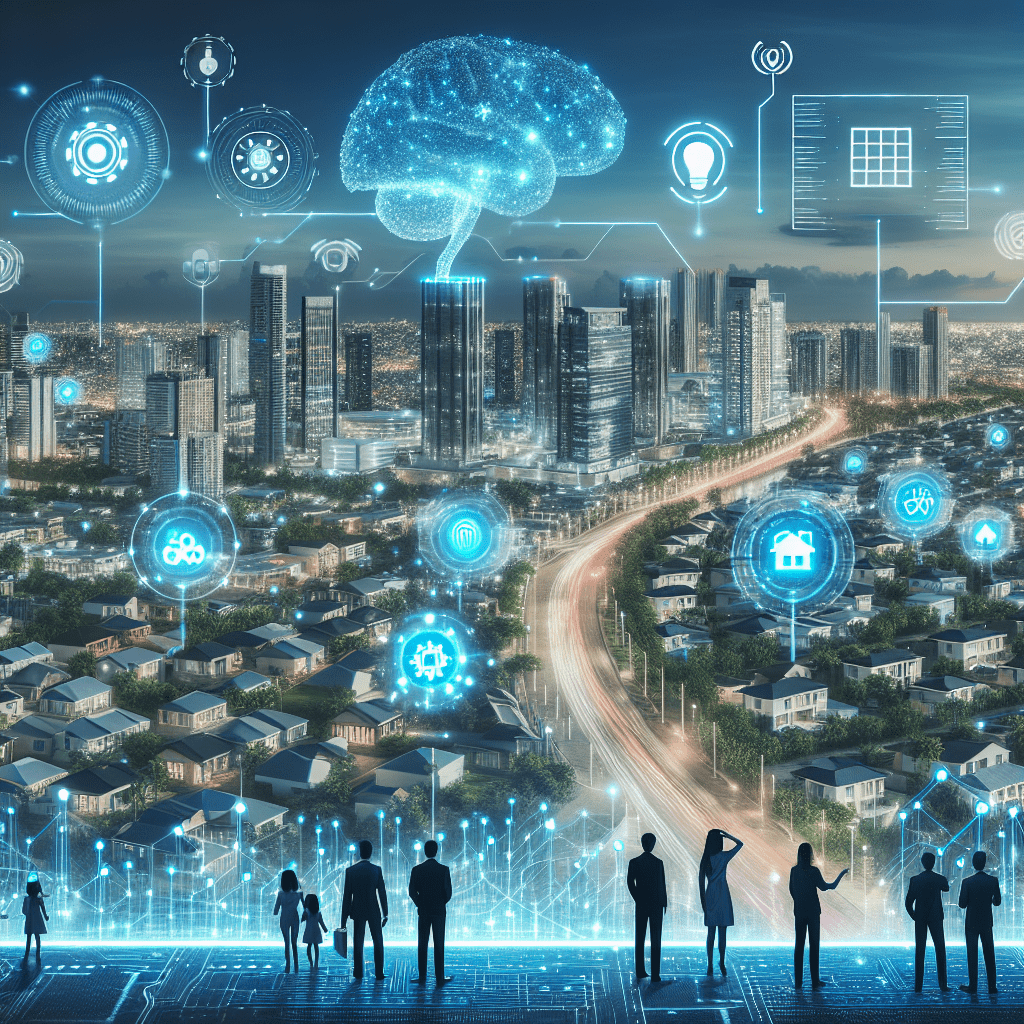From smart homes to smart cities, the integration of artificial intelligence (AI) is revolutionizing urban development across the globe. AI technology has the potential to transform our cities into more efficient, sustainable, and livable spaces for all residents. By leveraging AI-powered solutions, cities can address a range of challenges, from traffic congestion and energy consumption to public safety and waste management.
Smart homes serve as a microcosm of the larger smart city concept, where AI-enabled devices and systems are interconnected to provide residents with a seamless and personalized living experience. For example, AI-powered virtual assistants like Amazon Alexa and Google Assistant can control smart home devices such as thermostats, lighting, and security cameras, while learning and adapting to the preferences of residents over time.
In smart cities, AI is being used to collect and analyze data in real-time to optimize urban processes and improve overall quality of life. Traffic management systems use AI algorithms to predict and mitigate traffic congestion, reducing travel times and carbon emissions. Energy grids are becoming smarter with the help of AI, enabling efficient energy distribution and reducing energy waste. Public safety is enhanced through AI-powered surveillance cameras that can detect suspicious behavior and alert authorities in real-time.
Furthermore, AI is playing a crucial role in urban planning and development. City planners can use AI algorithms to analyze large datasets and simulate different scenarios to optimize land use, infrastructure planning, and public services. This data-driven approach allows for more informed decision-making and can help cities anticipate and address future challenges such as population growth, climate change, and natural disasters.
AI-powered solutions are also being used to improve sustainability in cities. For instance, smart waste management systems use sensors and AI algorithms to optimize waste collection routes, reduce landfill waste, and increase recycling rates. Smart water systems leverage AI to monitor water quality, detect leaks, and manage water resources more efficiently.
While the integration of AI in urban development holds immense promise, it also raises important ethical and privacy considerations. As cities become increasingly reliant on AI technology, it is crucial to ensure that data is collected, stored, and used in a responsible and transparent manner. Additionally, efforts must be made to bridge the digital divide and ensure that all residents have access to the benefits of smart cities.
In conclusion, AI is reshaping urban development by transforming cities into smarter, more efficient, and sustainable spaces. From smart homes to smart cities, AI technology is revolutionizing the way we live, work, and interact with our urban environments. By harnessing the power of AI, cities can address pressing challenges and create a more inclusive and resilient future for all residents.


